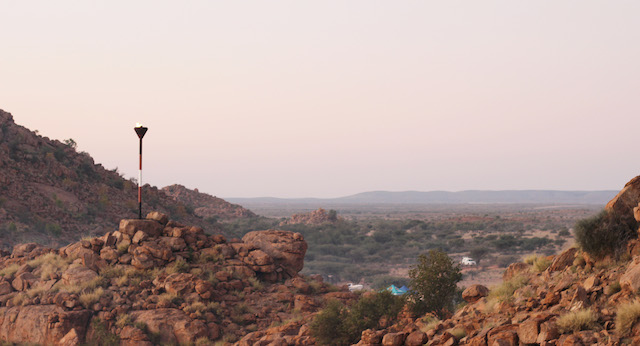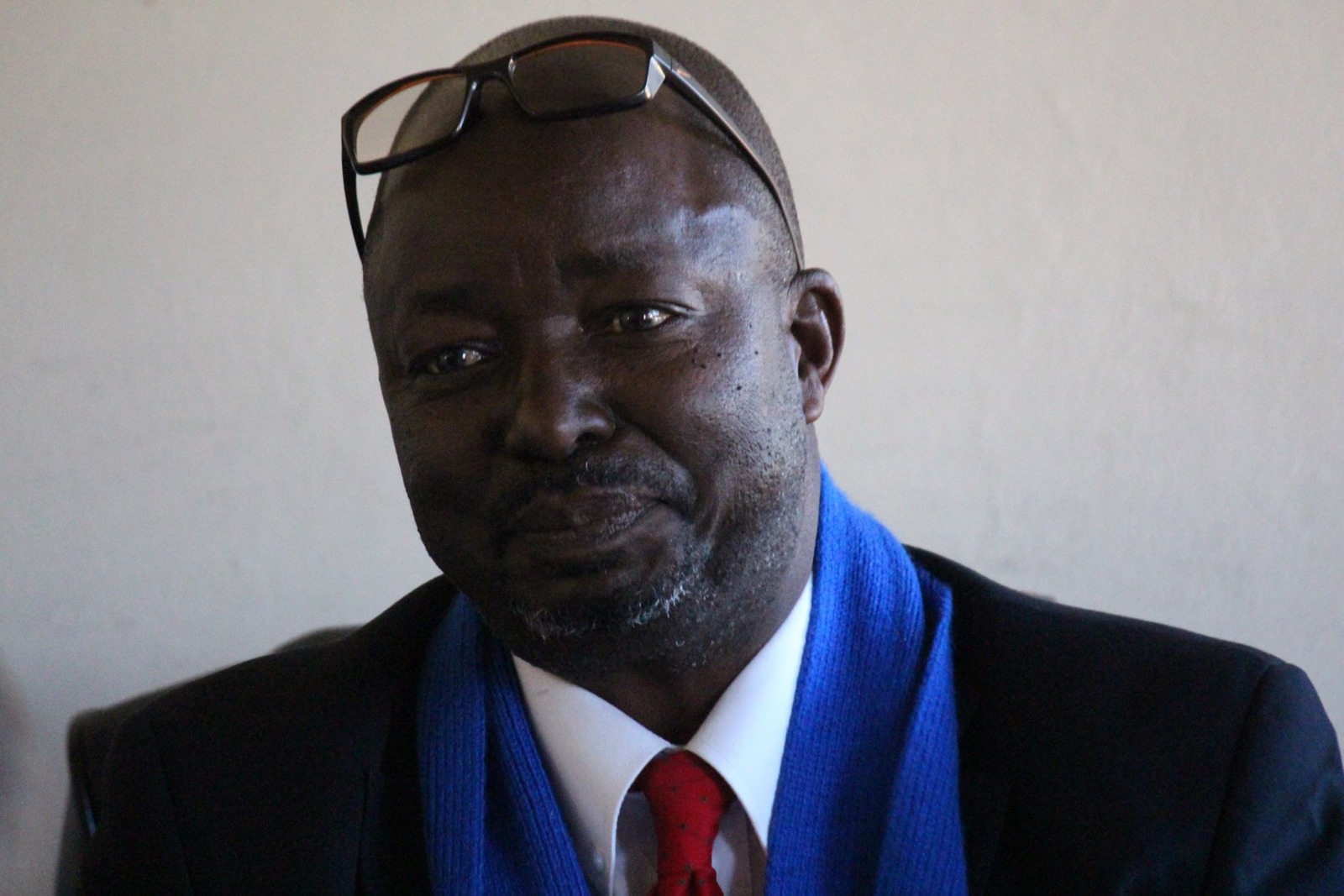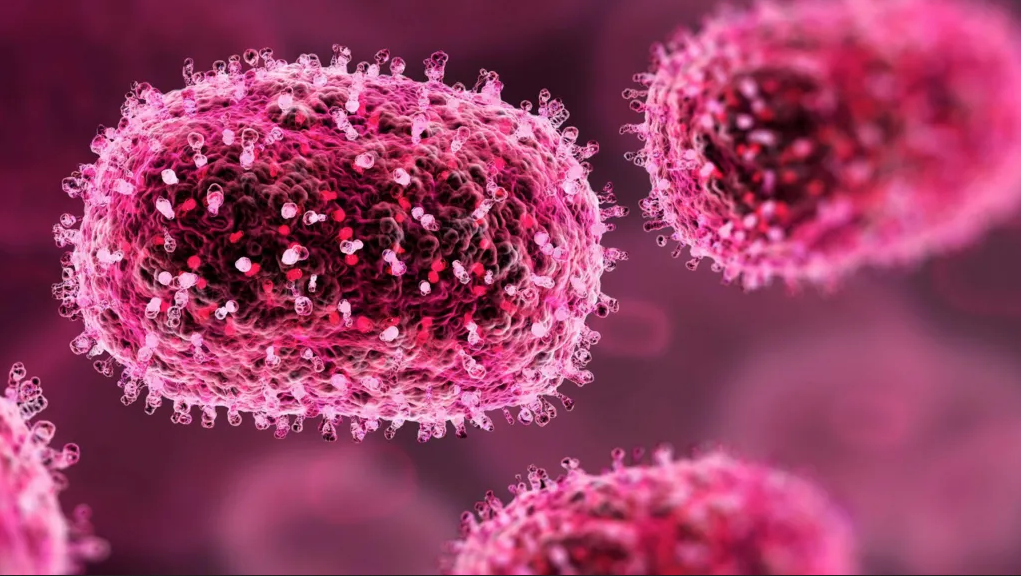Taking the dirt road from Rehoboth to Sam !Khubis and passing through the mountains, tall grass and open plains, it is hard to imagine that a trip that took us a few hours from Windhoek would have taken us a few days a hundred years ago, or that the peaceful country we live in now was once filled with wars, battles and a large loss of civilian life.
Our history books are lined with pictures and stories of some of the darkest events in our history, like the genocide of the Herero and Nama people or the Cassinga massacre to name a few.
Our country has come a long way from its colonial and apartheid past and with Namibia celebrating its 25th year of independence, 2015 has been a big year for us. It has been a year of reflection. We looked back on the past 25 years of being an independent nation and we continue to remember the Namibian men and women who fought for freedom and justice so that Namibia could be where it is today.
Since 1977, on 7 and 8 May every year, the Baster community from across Namibia have gathered at Sam !Khubis to remember the covenant they made with God, in the early hours of 8 May 1915, a day on which they faced sure annihilation by German troops.
Outnumbered and outgunned, they had no chance of surviving the attack which some suggest was an attempt by the German Schutztruppe to wipe out the Baster population entirely. As they waited for impending doom, and held on to their last rounds of ammunition, they bowed their heads in prayer and pleaded with God. They prayed that if they survived this attack, they would honour Him and return to the site each year as a people to offer their thanks. At the final hour, seemingly miraculously, the German troops that were closing in on them turned away and the Basters were saved.
It is believed that the Germans aborted their attack because they noticed a cloud of smoke approaching, which they suspected were oncoming Allied troops during World War I, but the Baster saw that cloud as an intervention from God, as the Allied troops that were meant to wipe out the Germans never arrived.
“People have all kinds of different theories, but we, the Children of Vow, know that a miracle happened here that blessed morning 100 years ago, and that was thanks to the faith of the Baster people,” relates Oupa Peter Jakobus Mouton.
He learned of the events of that fateful day from his grandfather and is determined to pass on this proud legacy of tradition and faith to generations to come.
“We must pass this on to our children and they to theirs, so that we never forget our covenant with God and how He mercifully intervened in what could have been our darkest hour,” he adds.
With almost 4 000 people joining in on the weekend celebrations, young and old, Basters and non-Basters alike show up to mark the centenary celebrations.
Packed with camping gear, bottles of water, food and a jovial mood, families set up camp for the evening.
The smell of meat sizzling on braai stands and potjiekos fills the air, as children and adults alike ride horses around the campsite, while some opt to climb to the top of the koppies, and enjoy the view.
Some travel from nearby Rehoboth, while others, including tourists from Germany and South Africa, travelled from afar to join the festivities with their Baster friends and colleagues.
Being our first time there and having seriously under packed, a little sense of panic starts to fill us with dread when we notice that most people came well prepared and stocked with food and their own braai stands. After trekking across the campsite to have a look at the facilities and set up, we return to our tent, to find that our neighbours, who graciously helped us put up our tent have set aside plates of food for the both of us.
With tiny tears of joy, gratitude and hunger filling our eyes we thank them for their kindness, sit down and scoff down our meals while admiring the stunning view around us and get absorbed in the buzz of the atmosphere.
The celebrations at Sam !Khubis are not only a cultural and historical one, but a religious one as well, as the majority of Basters are Christians. On most evenings throughout the nine-day commemoration, proceedings start with the singing of hymns, words of praise and thanks from the pastors.
“It was God’s hand that decided the events of that day and this 100th year commemoration would not have been possible had it not been for almighty God and the tremendous faith of the Baster people,” said Dominee Pedro van Schalkwyk, who was among the religious leaders present.
A German family who travelled to Namibia with the hopes of being reunited with their Namibian family are called onto the stage along with some long lost family members they met only a few hours ago.
They offer their thanks and appreciation for being able to take part in the celebrations, and for finding their long lost relatives.
In an act of asking for forgiveness, another German national washes the feet of their long lost Baster family, to atone for the sins of their ancestors. This act of contrition is met with respect and admiration.
After the heartfelt reunion, the rest of the evening is filled with musical and cultural performances as families huddle around the stage in their camping chairs to get a good view. Exhausted from the travelling and events of the first day, we call it a night, only to suddenly hear gunshots go off.
A taste of what is to come the next morning at 04h00. The re-enactment of what happened a century ago when the German soldiers attacked the Basters as they slept.
Among the rifle men stands Oom Petrus Kastoor, proudly brandishing his antique rifle from the 1800s, which still fires perfectly.
The next morning, people get dressed in their finest traditional Baster attire. With women wearing white bonnets to match the white pinafores that decorate their dresses, while men don their finest hats with feathers sticking out of them, suspenders and neatly pressed shirts.
“Seeing all these young people embracing their culture and tradition is really heartwarming and will hopefully leave them with a lasting sense of pride in their heritage,” said Norbert van Wyk.
After the morning’s proceedings, the crowd walk to the grave site of those who lost their lives. Flowers are laid on the tombstones, a prayer is said, and as a mark of respect, gunshots are fired into the air to honour the dead.
Tight for space, the crowd each take turns to come into the burial site to pay their respects. A woman motions to her family to join her for a photo next to a tombstone of someone who also holds their family name.
As the crowd disperses and returns to their tents for a little rest and refuge from the
Stay informed with The Namibian – your source for credible journalism. Get in-depth reporting and opinions for
only N$85 a month. Invest in journalism, invest in democracy –
Subscribe Now!






